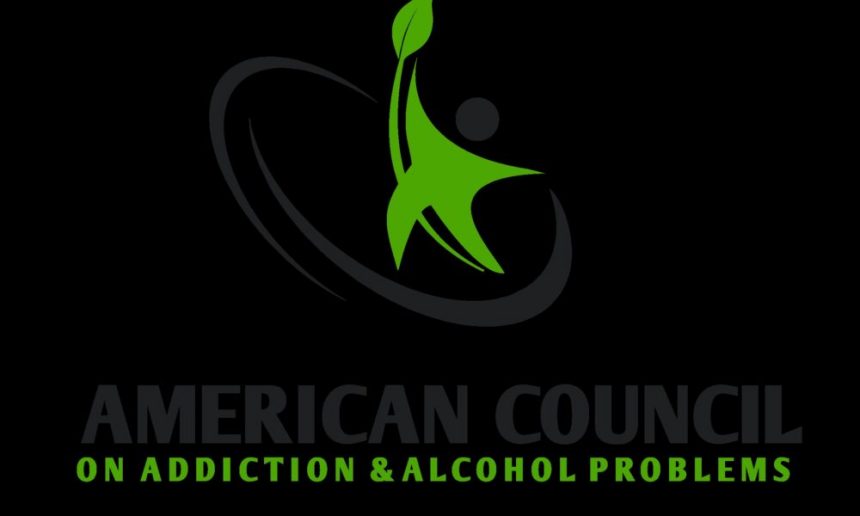The American Council on Addiction and Alcohol Problems (ACAAP) is a cornerstone in the battle against alcohol and drug addiction, serving as a unifying platform for individuals and organizations that advocate for abstinence and recovery. With a rich history dating back to its predecessor organizations—the American Temperance League and the Anti-Saloon League—ACAAP has evolved into a vital entity addressing substance abuse issues with a united voice.
A Legacy of Advocacy and Reform
The origins of the American Council on Addiction and Alcohol Problems can be traced back to the temperance movement of the late 19th century. Established in 1895, the Anti-Saloon League and the American Temperance League laid the groundwork for combating alcohol abuse by emphasizing education and legislation. These organizations believed in the power of collective action to mitigate the societal harms of alcohol.
The ACAAP inherits this legacy, continuing the fight against alcohol and drug problems while adapting to modern challenges. Over the decades, the organization has expanded its mission to address a broader spectrum of addiction issues, fostering partnerships with state affiliates, religious institutions, and fraternal organizations.
Philosophy and Principles
The guiding principle of the American Council on Addiction and Alcohol Problems is the philosophy of abstinence. ACAAP promotes the idea that abstaining from alcohol and addictive substances is essential for personal well-being and societal health. This philosophy underpins all of its programs, outreach efforts, and policy initiatives.
By focusing on abstinence, ACAAP not only seeks to prevent addiction but also aims to mitigate the devastating consequences of substance abuse, such as broken families, health crises, and economic burdens. The organization emphasizes that addiction is not just a personal issue but a community problem that demands a collective response.
A Collaborative Approach
One of the most distinctive aspects of the ACAAP is its collaborative model. The organization’s membership comprises a wide array of stakeholders, including state temperance organizations, national Christian denominations, and fraternal organizations. This diverse coalition reflects the widespread concern over substance abuse and the shared commitment to finding effective solutions.
The Board of Directors of ACAAP exemplifies this collaborative spirit. Comprising representatives from state affiliates, religious denominations, and fraternal organizations, the board ensures that various perspectives are considered in the organization’s decision-making processes. This inclusive governance structure enables ACAAP to maintain its relevance and effectiveness in addressing addiction issues.
Programs and Initiatives
ACAAP undertakes a variety of programs and initiatives aimed at combating addiction and promoting abstinence. These efforts include:
- Education and Awareness Campaigns: ACAAP organizes public awareness programs to educate communities about the dangers of alcohol and drug abuse. These campaigns often highlight the social, health, and economic impacts of addiction.
- Policy Advocacy: Staying true to its roots in the temperance movement, ACAAP engages in policy advocacy to influence legislation related to substance abuse. The organization supports measures that promote public health and safety, such as restrictions on alcohol advertising and initiatives to curb drug trafficking.
- Support for State Affiliates: ACAAP works closely with its state affiliates, providing resources, guidance, and a platform for collaboration. This partnership strengthens the impact of local organizations and ensures that the fight against addiction is effective at both state and national levels.
- Faith-Based Interventions: Given its strong ties to Christian denominations, ACAAP incorporates faith-based approaches into its programs. These initiatives often involve spiritual counseling, community support, and moral encouragement to help individuals achieve and maintain sobriety.
Addressing Modern Addiction Challenges
In today’s rapidly changing world, the American Council on Addiction and Alcohol Problems recognizes the need to adapt its strategies to address contemporary addiction issues. While alcohol remains a major focus, the organization has broadened its scope to include other substances, such as opioids, prescription drugs, and synthetic drugs.
The opioid crisis, for instance, has become a pressing concern in the United States, causing widespread devastation. ACAAP has responded by raising awareness about the risks of opioid misuse, advocating for stricter regulations, and supporting recovery programs.
Similarly, the rise of synthetic drugs and the growing prevalence of prescription drug abuse pose new challenges. ACAAP is committed to staying ahead of these trends, ensuring that its programs remain relevant and impactful.
The Importance of Community Involvement
One of ACAAP’s core beliefs is that community involvement is essential for tackling addiction. The organization encourages individuals, families, and local groups to participate in its initiatives and contribute to a culture of abstinence. By fostering a sense of collective responsibility, ACAAP empowers communities to take proactive steps in preventing and addressing addiction.
A Trusted Resource for Change
Located at 2376 Lakeside Drive, Birmingham, AL 35244, ACAAP serves as a trusted resource for those seeking support, information, and advocacy related to substance abuse. The organization’s dedication to its mission is evident in its comprehensive approach, which combines education, policy advocacy, and community engagement.
Individuals and organizations can reach ACAAP at 205-989-8177, making it accessible for collaboration, inquiries, or assistance. Whether you’re looking for resources to combat addiction in your community or seeking guidance for personal recovery, ACAAP stands as a reliable partner in the fight against substance abuse.
Looking Ahead: The Future of ACAAP
As the landscape of addiction continues to evolve, the American Council on Addiction and Alcohol Problems remains steadfast in its mission to promote abstinence and address substance abuse with a united voice. By building on its historical legacy and embracing innovative approaches, ACAAP is well-positioned to make a lasting impact on individuals, families, and communities.
In the years to come, ACAAP’s success will depend on its ability to adapt to emerging challenges, strengthen partnerships, and inspire collective action. With its unwavering commitment to its philosophy of abstinence, ACAAP serves as a beacon of hope for a healthier, addiction-free society.
Conclusion
The American Council on Addiction and Alcohol Problems is more than just an organization—it is a movement dedicated to creating positive change. By uniting diverse groups under a common cause, ACAAP exemplifies the power of collaboration in addressing one of society’s most pressing issues. Whether through education, advocacy, or community support, ACAAP continues to lead the charge in the fight against addiction, offering a path to recovery and a brighter future for all.








